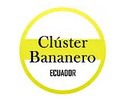The Banana Cluster of Ecuador, an organization bringing together the country's main banana and plantain producers and exporters' associations, along with the National Anti-Narcotics Directorate of the National Police, announced at a press conference their joint work to combat drug trafficking organizations contaminating vessels of the country's agro-export sector and putting at risk the safe export of product to international markets.
"As Anti-Narcotics Police, we implement border controls with the help of the Armed Forces to prevent drugs entering our country and reaching ports and contaminating cargo and exports. It is a clear and forceful message we’re giving to narco-criminal organizations: that we as the National Police face this work, not in a unilateral way but in a coordinated way, with all the actors and especially with the Banana Cluster,” said general Giovanni Ponce, national director of antinarcotics.
According to anti-narcotics figures, 23 tonnes (144 kg) of drugs were seized in 2020. In 2021, to date, 30 tonnes (239 kg) have been registered. This shows police work is preventing drug trafficking organizations from transferring drugs to different destinations. It should be noted that the seizure of banana drugs in 2018 resulted in five tonnes. By 2020, it had risen to six tonnes, and so far this year, three tonnes have been seized.
“The whole value chain has to participate in the control, and that includes shipping companies,” said Juan José Pons, coordinator of the Banana Cluster. “The Anti-Narcotics Police do their job until they put the container on the ship. But then the ship departs and contamination occurs on the high seas. It is essential to be very clear that the work to fight against drug crime is a joint effort, joining forces to fight against a contamination that does nothing good for the country's agro-export sector.”
The Banana Cluster represents 60 percent of banana production and 100 percent of banana exports, and 80 percent of banana exports from Ecuador. They represent two percent of the national GDP with an important local and international presence of the musaceae trade. They generate 250,000 direct and indirect jobs and promote the development and growth of other related industries necessary for agro-exports.
 For more information:
For more information:
María José Cruz
Tel: +593 99 860 0589
mtobar@atrevia.com
